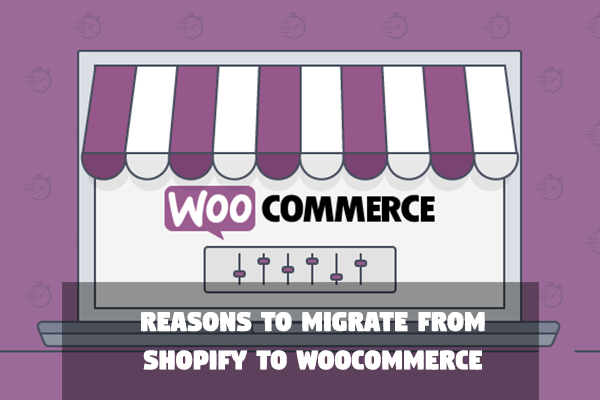WooCommerce is currently among the most popular platforms to move an online store to. However, business owners still ponder over the question why migrate from Shopify to WooCommerce. Below, you will find a list of just some of the reasons to opt for WooCommerce while selecting a platform to migrate to. Let’s take a look:
1. It’s free
When choosing a platform to migrate to, price is likely to be a major factor. E-commerce applications range from free to thousands of dollars per year, but WooCommerce is free to download. This is great news for people running online stores with little capital.
2. Versatility
Incredibly flexible, WooCommerce is the one-size-fits-all solution to handle various products. With it you can sell anything – from physical products and digital downloads, to content and subscriptions. It’s truly the Swiss Army Knife of e-commerce platforms.
3. It is fast
A hassle-free shopping experience is vital when it comes to e-commerce. Since WooCommerce is WordPress-based, it can provide you with unprecedented speed and ensure a fast and responsive experience for an online store of any size.
4. Powerful content management
Content is vital for e-commerce marketing and SEO. Well aware of this fact, WooCommerce offers a wide variety of content management options, and WooCommerce-compatible SEO plugins make it easy for retailers to optimize content for the search.
5. Scalability
It’s good to think about the future when choosing an e-commerce application: your business may be small now, but after some time and dedication, it can enjoy significant growth. WooCommerce can scale from a few products to several thousands, and from a handful of shoppers daily to hundreds of shoppers per second.
6. Rich analytics functionality
It’s hard to imagine a successful e-commerce website without analytics. That’s why WooCommerce provides an extensive set of analytics, right out of the box. WooCommerce also offers smooth integration with popular services like Google Analytics, Adobe Marketing Cloud, MixPanel, etc.
7. Security
Since WooCommerce is regularly updated, you do not have to worry about security issues. Moreover – it will be always compatible with the newest version of WordPress. With a one-click update system, getting bug fixes and security updates on WooCommerce is fast and easy.
8. Strong developer community
If you need to make any changes to your store, it won’t be a challenge to find a high-skilled developer since WooCommerce developers come from all over the world.
9. WordPress based
WooCommerce inherits all of the benefits of WordPress such as flexibility, functionality, security, and speed – all of which is uses to build a world-class e-commerce experience for retailers and their customers.
Preparations Before Migration Process
We’ve covered the main reasons to opt for WooCommerce when choosing an e-commerce application to which to transfer your online store, so now let’s talk about the prep work.
Before you make up your mind to export Shopify to WooCommerce, you need to install your WooCommerce plugin and make sure it is accessible online. You will most likely also need to purchase hosting, but it is reasonable to consider an inexpensive shared hosting option, so don’t panic about potential hosting costs.
After you’ve installed the WooCommerce store plugin, you’ll naturally want to choose a WooCommerce theme. We recommend one of two scenarios. Either choose a theme that is most structurally like your current store theme so as to resemble your existing site, or go with a vastly different look, as if you are doing a rebrand. There is no need to get overly concerned with little details as, such as color scheme, because that can be easily changed – theme customization can easily address issues of that nature.
It’s extremely important to notify your customers and suppliers in advance that the website will be unavailable for a time. This extra step will help to instill confidence in your site. Otherwise, visitors may feel apprehensive about the overall dependability of your shop, just by unexpectedly seeing the site down. You should select a time when you typically have the lowest amount of traffic. We also recommend that you backup all of your store data prior to migration.
Once you have installed the WooCommerce store plugin, verified it for accessibility, and taken care of the backups, you’re completely ready to migrate from Shopify to WooCommerce!

